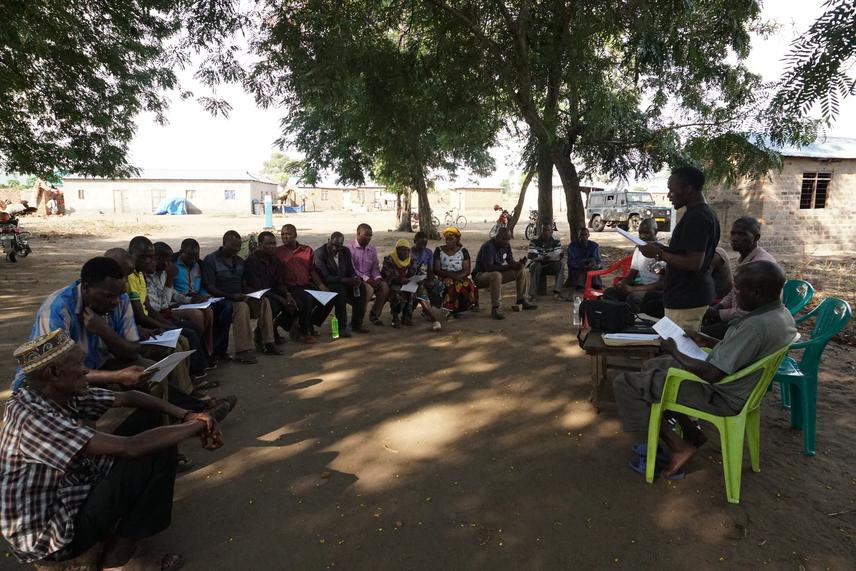Jonathan Kwiyega
Other projects
Direct killing of lions by local communities, habitat loss, a declining prey base and legal hunting by tourists threaten lion populations in Tanzania. In western Tanzania, illegal traditional lion killing by Sukuma agro-pastoralists is highly risking lions’ existence. WASIMA campaign has succeeded to stop illegal lion hunting practices in Mpimbwe, south of Katavi National Park, and identified potential areas of expanding operations adjacent Ugalla, Rukwa-Lwafi Game Reserves, Inyonga- Mlele Forest Reserve and Katavi-Mahale wildlife corridor. Intensification of WASIMA model operations will reduce illegal lion killings, increase community conservation commitment among the agro-pastoral Sukuma settling around these important habitats for lions.

Charles facilitating Kabunde villagers to approve by-laws to stop lion killing practices in the south of Katavi-Rukwa ecosystem. © Utku Kuran
Our goal is to effectively strengthen the “Stop Illegal Lion Killing” campaign in spreading wildlife conservation awareness among community members, securing their commitment, implementing village by-laws to ban lion killing and promote values of living with lions and alternative local environmental friendly livelihoods to promote habitat preservation within Sukuma agro-pastoral communities. We aim to emphasize the launched WASIMA operations by working in remote areas identified around key protected areas that still harbor lions. We are focusing at remote villages within Rukwa-Katavi-Mahale and Ugalla ecosystem (20458km2); around Rukwa-Luafi GR (7,024km2), Ugalla GR (5,000km2), Mahale NP (1,613km2), Inyonga-Mlele FR (2,350km2) while keeping a close watch on conservation operations around Katavi NP (4471km2). Strengthening the operations will involve implementation of multi-prolonged outreach activities such as approval of by-laws banning lion killing and lion dancing practices approval meetings, Sungusungu (traditional policing institution) capacity building to ensure effective village by-law enforcement, village and community group leaders seminars, local leaders park trips, public conservation education awareness (public talks, educational materials presentation and film shows), livelihood and biodiversity conservation projects such as beekeeping, greening (tree planting and conservation of natural forests) and organic farming and cultural tourism.
The project primary target is to ensure lion conservation awareness of the illegal shift in Sukuma lion killing practices spreads among community members living adjacent to these key reserves, and to secure community commitment towards halting lion killings. We believe that strengthening the launched WASIMA model operations of this campaign will increase our success possibilities as we have already done village assembly meetings and workshops [10] to garner the local free and prior informed consent and stakeholders’ cooperation, commitment and support. With effective implementation, we expect reduced human-lion conflict, poaching and encroachment and more over improved human-lion coexistence and certainty of the future existence of lions in western Tanzania.